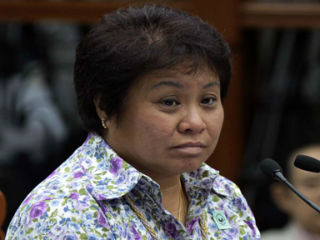Filtered By: Money
Money
Street prices of cigarettes go up as new sin tax takes effect
By SIEGFRID O. ALEGADO, GMA News
Sidewalk vendors raised their selling prices for a stick of cigarette on Tuesday, Jan. 1, the day the controversial sin tax reform law takes effect, even before the first batch of tobacco products actually carrying higher excise taxes hit the market.
Per tingi – a homegrown marketing concept of selling by the smallest denomination which in this case is a cigarette stick – cigarettes were selling on the street 16.66 percent to 33.33 percent more than the old pre-sin tax prices less than 24 hours earlier.
An informal survey by GMA News Online showed all five sidewalk vendors interviewed in Quezon City raised the price per cigarette stick by P0.50 to P1, claiming that retail prices of their supply for the days have increased.
“Tinaas ko na yung presyo, dati yung isang piraso ng Marlboro Lights at Philip Morris binebenta ko ng P3. Ngayong araw nasa P3.50 na. Yung ibang brand nasa P4 na bawat isa ang benta ko galing P3,” said Pio Manidillo, who sells cigarettes and candies beside the Metro Rail Transit station near the corner of EDSA and Timog Avenue.
“Mas mahal na kasi yung kuha ko ng bawat pack, yung iba tumaas ng hanggang P10,” he said, claiming that his retailer-supplier told him the increase in prices were due to a new and higher excise taxes on so-called “sin” products.
Popular convenience stores along EDSA, however, kept cigarette prices unchanged. Sales clerks, who asked not to be named so they don't get in trouble with their employers, told GMA News Online their stores ran of stocks of certain brands after customers bought what they have in an effort to hoard and avoid paying the new prices.
On Tuesday, the Bureau of Internal Revenue imposed higher excise taxes on tobacco and alcohol products, after President Benigno Aquino III signed into law Republic Act No. 1035 or the Sin Tax Reform Law last Dec. 20.
“New taxes have been slapped on sin products leaving the factory or are imported at past midnight of January 1,” Internal Revenue Commissioner Kim Jacinto-Henares told GMA News Online. 

'Sooner than later'
According to Henares, retail prices of cigarettes did not exactly spike across-the-board on Tuesday because: (1) tobacco products taxed with higher rates are still making their way to the market, and (2) producers may not immediately transfer the tax burden to consumers.
“The tax rate goes up, but it doesn't necessarily mean that retail prices would go up immediately,” Henares noted.
“It's the business decision of manufacturers or importers whether they increase their prices immediately or introduce slight increases,” she added, noting that the government sees prices of cigarettes “rising sooner than later.”
GMA News Online asked the two leading cigarette producers in the country – British American Tobacco (Phils.) Ltd. and Philip Morris Fortune Tobacco Corp. Inc. – if they would hike prices immediately or gradually. But the companies' representatives have yet to respond as of this posting.
Asked about the reported increases in retail prices, Henares noted, “It's the retailers windfall income. Wala namang problema doon if they hike prices of their old stocks. Again, as with producers it's their business decision, and they do take a risk.
“Excise taxes on old stocks did not rise. But if their prices are increased then retailers would have to pay higher income tax, wouldn't they?” she added.
Under the “sin” tax reform law, cigarette packs with a net retail price of P11.50, minus the excise tax and the value-added tax, will have a P12 excise tax in 2013, and those selling at a net retail price of over P11.50 will be levied a new rate of P25.
These rates will go up in the years running on to 2017; by then a pack of cigarettes will carry a P30 unitary excise tax. To be implemented after 2017 is a 4-percent yearly increase in excise taxes on sin products.
A pack of Marlboro Lights – one of the most popular high-priced brands in the market – is carrying a P25 excise tax, up from last year's P11.43. The most popular low-priced cigarette Fortune has a new excise tax of P12, significantly higher than its previous rate of P2.47.
In general, however, it's a wait-and-see for smokers in terms of how high manufacturer would actually increase the factory price of their cigarettes with the new excise tax rates in place.
A health measure
 Henares maintained that the sin tax reform law is a health measure to curb smoking. “We are targeting to curb smoking among the poor and the young. If we are able to achieve that, then we're okay,” she said.
Henares maintained that the sin tax reform law is a health measure to curb smoking. “We are targeting to curb smoking among the poor and the young. If we are able to achieve that, then we're okay,” she said. In a Dec. 12 interview, University of Santo Tomas economist Alvin Ang explained that hard-core smokers may not actually stop smoking despite the higher cost of supporting the habit, but price-sensitive sectors like the youth and poor would have to cut down in the long-run.
Henares echoed such an observation on Tuesday, saying that the government will spend less in addressing smoking-related health costs should the price-sensitive sectors decide either to reduce their cigarette consumption or drop the habit.
“There are always questions on revenue, but the first and primary concern is health. If demand goes down, then revenues may take a hit, but the increase in rates in the future as well as lower health costs due do less smokers will compensate for that,” she added.
“This is an extreme example, if there are no smokers then we do not have revenues from cigarette tax. But we also do not have to cover for health expenses of those getting sick due to smoking. If that's the case then we're happy,” the BIR chief said.
In the meantime, while government is still shelling billions of pesos on smoking-related health costs, hard core smokers will provide a revenue stream under the reformed sin tax regime, Henares noted.
The measure is expected to generate P33.96 billion in fresh revenues during the first year of implementation. The lion's share, or P23.4 billion, will come from tobacco products.
Of the collections beginning this year, 15 percent will support tobacco farmers and the industry and 85 percent will go to the Health budget. Additionally, a chunk or 80 percent of the allocation for health will pay for the Universal Health Care Program, and 20 percent for the enhancement of health care facilities. — VS/KBK, GMA News
More Videos
Most Popular



